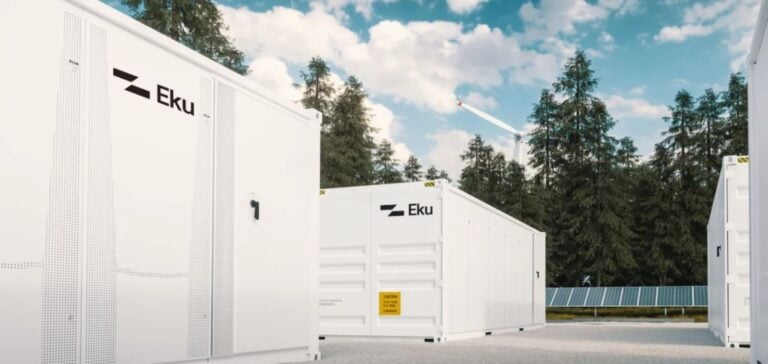Energy storage specialist Eku Energy has announced the financial close for its Williamsdale Battery Energy Storage System (BESS), located in the Australian Capital Territory (ACT). This project, with a capacity of 250 MW/500 MWh, aims to bolster Canberra’s energy supply by storing renewable energy for use during peak demand periods. Composed of Megapacks supplied by Tesla Energy, the Williamsdale BESS will be able to power approximately one-third of Canberra for two hours during high-demand periods.
In partnership with the ACT government, Eku Energy has implemented a revenue-sharing model. This structure allows the government to receive a portion of the revenues generated by Williamsdale BESS through its participation in the National Electricity Market (NEM) in exchange for guaranteed quarterly payments over 15 years. This secured revenue stream enables access to competitive financing from Westpac, Sumitomo Mitsui Banking Corporation (SMBC), and MUFG Bank.
A Project Supporting Energy Transition
The Williamsdale BESS is part of the ACT government’s “Big Canberra Battery” initiative. The facility, connected to the Evoenergy network, will play a critical role by providing essential grid services such as fast frequency response and system reinforcement. This capacity will enable better integration of renewable energy into the grid, supporting the ACT’s goal of achieving carbon neutrality by 2045.
Alongside Tesla Energy, which supplies the Megapacks, Consolidated Power Projects (CPP) has been selected to oversee the project’s technical aspects. Eku Energy anticipates the Williamsdale BESS will be operational by 2026, with ongoing management and maintenance by its team.
Financial Model for Sustainable Energy Storage
The Williamsdale BESS project highlights an innovative financial model: by combining revenue sharing with guaranteed fixed payments, it attracts private investments while reducing the cost of access to clean energy for the ACT. Daniel Burrows, CEO of Eku Energy, emphasized that this financing model is essential for achieving both energy and climate goals while creating local economic opportunities. Chief Technology Officer Elias Saba noted that this model could facilitate the realization of future large-scale energy storage projects.
International Expansion of Eku Energy
The Williamsdale BESS marks the seventh Eku Energy project to reach financial close. Simultaneously, the company is developing approximately fifty energy storage projects, primarily in Australia, the United Kingdom, Japan, and Italy. This growth reflects a rising demand for reliable storage solutions that support the transition to renewable energy.
By implementing these infrastructures, the ACT and Australia as a whole strengthen their ability to meet their climate goals. The Williamsdale project exemplifies how public-private partnerships can structure a sustainable model for clean energy.





















